The Group
Current members
Prof. Yiwen Chu, group leader
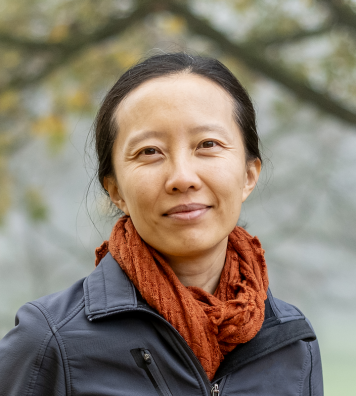
After doing my undergraduate studies at MIT, I moved down the street to Harvard, where I did my PhD studying quantum optics with nitrogen-vacancy centers in the group of Prof. Mikhail Lukin. Wanting to try out a different quantum system, I worked on circuit QED as a postdoc in the group of Prof. Rob Schoelkopf at Yale. Through collaborations with the group of Prof. Peter Rakich (also at Yale), I also added quantum acoustics and optomechanics to my repertoire.
Office: HPF F9, phone: +41 44 633 81 50, email:
Manuela Weber-Semler, administrative assistant
After some years as an administration specialist for an insurance general agency, a travel tour operator and a voice communications provider, I joined ETH Zurich in 2007. I have been working as an administrative assistant for D-ITET ISG and within the Physics department. In January 2022, I joined the Hybrid Quantum Systems group.
Office: HPF F7, phone: +41 44 633 76 17, email:
Chiara Corticelli, administrative assistant
Office: HPF F7, phone: +41 44 633 76 17, email:
Dr. Matteo Fadel, Branco Weiss and SNSF Ambizione fellow
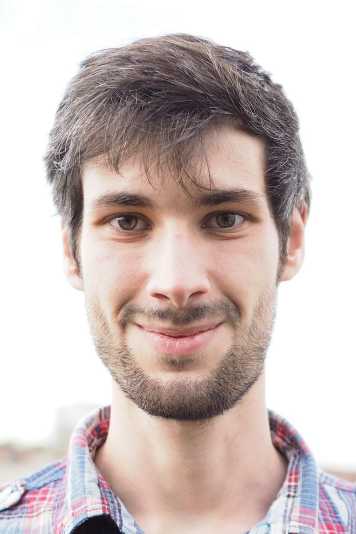
My passion for science led me to begin studying physics at the University of Padova (Italy). After a Master at ETH Zurich, I joined for my PhD the group of Prof. P. Treutlein in Basel, where I investigated multipartite quantum correlations in Bose-Einstein condensates. Afterwards, I stayed a bit longer in Basel to setup an experiment for the optical manipulation of the nuclear spin in Helium-3 gas, a system with week-long coherence time! Motivated by the interest in exploring quantum effects in macroscopic objects, and by a passion for experimental music, I joined the HyQu group with the dream of manipulating sound at the quantum level to explore the boundaries of quantum mechanics. Currently, I am also developing a bosonic quantum simulator using acoustic vibrations.
Office: HPF F10, phone: +41 44 633 30 38, email: fadelm(at)phys.ethz.ch
Dr. Samuel Pautrel, Postdoc
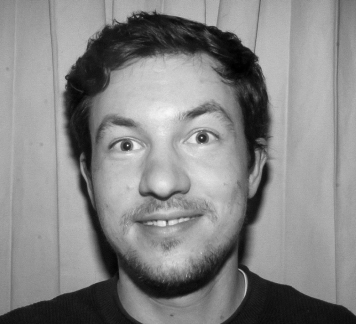
I did my undergrad studies at ESPCI Paris, France, where I studied physics, chemistry and biology for three years. Two internships, one on a JPA, the other on a squeezing-enhanced atomic clock confirmed my preference for physics. I specialized in condensed matter physics during a second year of master at ENS Paris. My interest in quantum optics and experimental challenges led me to apply for a PhD in quantum optomechanics with GaAs disk resonators in the group of Ivan Favero (Université Paris Cité), which I defended in November 2023. Wanting to keep working in the field of quantum acoustics and to explore ways of hybridizing phonons to other quantum degrees of freedom, I joined the group in January 2024.
Office: HPF G4.2, phone: +41 44 633 89 91, email:
Simon Storz, Postdoc
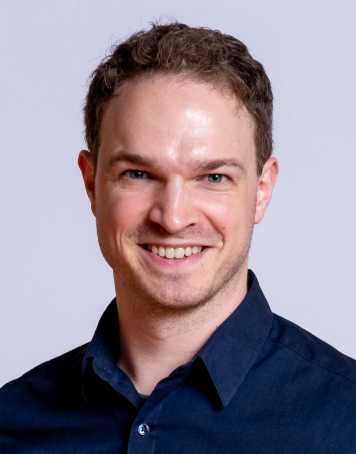
During my physics studies at ETH Zürich, I developed a deep interest in the properties of quantum mechanics. This fascination led me to pursue a PhD in the Quantum Device Lab under Prof. Andreas Wallraff, focused on storing and manipulating quantum information using superconducting circuits. There, we successfully interconnected remote quantum circuits over distances up to 30 meters through a cryogenic microwave link. In this system, we demonstrated a loophole-free Bell test and applied the quantum-mechanical resource of non-locality to information processing. The compelling prospects of coupling superconducting circuits with phonons—both for fundamental physics and quantum information processing—motivated me to start a postdoctoral position in the Hybrid Quantum Systems Group in April 2024.
Office: HPF F3, phone: +41 44 633 22 41 email:
Chris Adambukulam, Postdoc
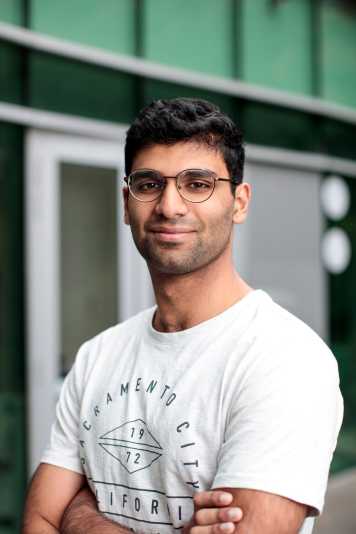
For my undergraduate degree, I studied electrical engineering at the University of New South Wales in Sydney, Australia. My interest in quantum technologies began with an internship in the group of Prof. Andrea Morello concerning the electronic and nuclear spins of single donor atoms in silicon. After completing my undergraduate degree, I decided to do a PhD under the supervision of A/Prof. Arne Laucht and Prof. Andrea Morello, investigating the electronic and nuclear spin properties of single germanium vacancies in diamond. I was awarded my PhD in 2024, and following which, I decided expand my knowledge of quantum technologies by joining the HyQu group as a postdoc and studying the interactions between single spins and phonons.
Office: HPF G3.1, phone: +41 44 633 41 50, email:
Alexander Anferov, Postdoc

During my undergraduate studies at Caltech, I worked on parametric amplifiers in Prof. Oskar Painter's lab. Afterwards, I transitioned to a new frequency range, studying millimeter-wave superconducting quantum devices with Prof. David Schuster at the University of Chicago. After completing my PhD, I spent a year exploring microwave qubit fabrication techniques with Prof. Andrew Cleland. Now looking to branch out into different flavors of quantum systems, I joined the lab to explore applications of quantum acoustic resonators.
Office: HPF G3.1, phone: +41 44 633 39 51 , email:
Hans Beukers, Postdoc

After completing my degrees in physics and medicine at the University of Groningen, I pursued my interest in quantum mechanics with a PhD in the group of Ronald Hanson at QuTech, Delft University of Technology. My research focused on diamond color centers. We used these centers to create the first three-node quantum network, and I worked on advancing the quantum control of nearby nuclear spins, which serve as quantum memory qubits. In August 2025, I joined the HyQu group as a postdoctoral researcher, working on microwave-to-optics transduction with the goal of bringing quantum networks to superconducting qubits.
Office: HPF F10, phone: +41 44 633 30 38, email:
Tom Schatteburg, Doctoral student
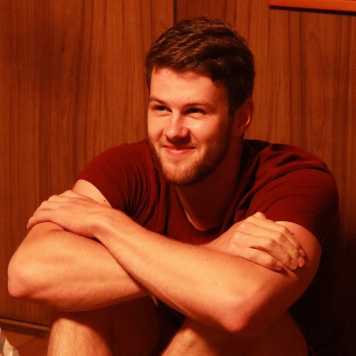
I did my Bachelor and consecutive Master in Interdisciplinary sciences at ETH, starting in the chemical division. After a semester project on chemical synthesis and my Bachelor thesis about time-resolved photoelectron spectroscopy, I shifted more towards quantum physics. Both my following semester and Master projects in the area of ion-trap physics in the group on Prof. Jonathan Home enhanced this interest. The promising approach to combine multiple quantum systems in order to exploit their individual advantages sparked my interest in the hybrid quantum systems group, which I joined in 2019.
Office: HPF G3.1, phone: +41 44 633 41 50, email:
Max Drimmer, Doctoral student
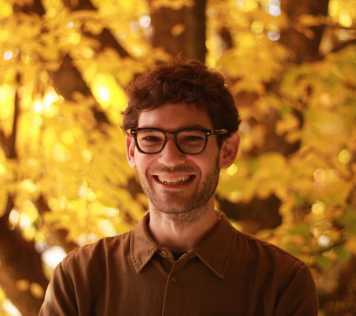
I dove into the field of optomechanics during my undergraduate studies at Stanford University, when I investigated a nanophotonic approach to surface acoustic wave sensing in the lab of Professor Amir Safavi-Naeini. Afterwards, I completed my master’s degree at TU Delft in 2020 where I continued my work by developing hybrid piezo-optomechanical systems for quantum-efficient wavelength conversion in the group of Professor Simon Gröblacher. Later in 2020 I started my PhD in the Hybrid Quantum Systems group. During my doctorate, I look forward to expanding quantum control of acoustic interactions.
Office: HPF G4.2, phone: +41 44 633 89 91, email:
Arianne Brooks, Doctoral student
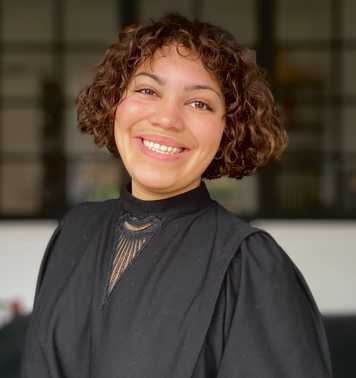
Originally from mainland Denmark, I moved to Copenhagen to study physics at the University of Copenhagen in 2016. During an exchange programme at LMU in Munich I developed a passion for optics and laser physics, after which I joined the HyQ research centre at the Niels Bohr Institute in Copenhagen where I wrote both my bachelor and master thesis about applying near-infrared GaAs quantum dots for quantum information processing. Being highly interested in quantum technology advances in hybrid platforms, I joined the Hybrid Quantum Systems group at ETH in 2022 to do my PhD.
Office: HPF F3, phone: +41 44 633 22 41, email:
Stefano Marti, Doctoral student
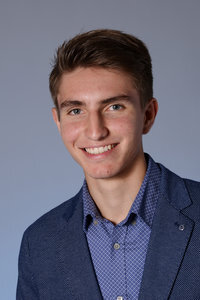
Towards the end of my Bachelor's degree, I fell in love with quantum information. I therefore took as many related courses as possible, while completing both a theoretical semester project about two-photon emission in tunnel junctions and a practical project at the Quantum Optics group under supervision of Prof. Esslinger, implementing an image processing algorithm on a FPGA for laser beam stabilization. After this, I realized that I was highly motivated to learn about different kind of quantum systems and their interactions, which led me to conduct my master's thesis at the HyQu group, investigating in particular a radiation loss mechanism affecting qubit lifetimes. I was so fascinated by the interplay of systems that I went on and started my PhD beginning of January, continuing the work on cQAD.
Office: HPF G4.1, phone: +41 44 633 91 48, email:
Andraz Omahen, Doctoral student
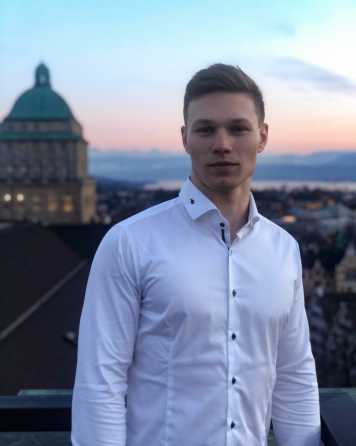
I obtained my undergraduate degree in my hometown at the University of Ljubljana and came to ETH for my masters in Physics. During the course of my degree I explored various quantum systems by joining the groups of Prof. Andreas Wallraff and Prof. Jonathan Home for a semester project. Furthermore, I worked with bilayer graphene quantum dots for my masters thesis in the Ensslin group. Having explored different areas of quantum physics, I am eager to apply my knowledge and experience in the Hybrid Quantum Systems Group, where I started my PhD in March 2023.
Office: HPF F10, phone: +41 44 633 30 38, email:
Stefan Pfleging, Doctoral student
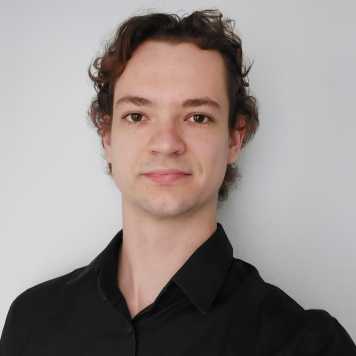
I gained my first experimental experience in the field of lithium-ion batteries within the frame of my job as student assistant, which I was able to start already in the first semester of my bachelor’s studies at Karlsruhe Institute of Technology (KIT) in Germany. They were concluded by my thesis about Whispering Gallery Mode Resonators in the Group of Prof. Heinz Kalt. After addressing classical optics with this project, I got more interested in quantum optics and solid state physics during my master’s studies at KIT. This is why I decided to work for the thesis in the Group of Prof. Wolfgang Wernsdorfer on quantum emitters in hexagonal boron nitride and their Stark tuning at room and low temperature. After being able to control quantum emitters to a certain degree, it seemed logical to me to try to incorporate them in more complex systems, which is what I will try to accomplish during my PhD studies in Hybrid Quantum Systems Group, which I started in 2023.
Office: HPF G3.2, phone: +41 44 633 91 48, email:
Max-Emanuel Kern, Doctoral student
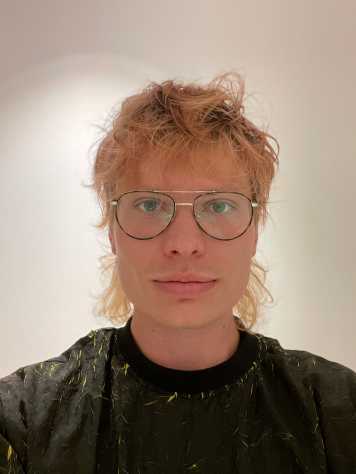
I started my studies in Engineering Science at TUM, in the wonderful city of Munich. I quickly realized that I was more passionated in the physics lectures and therefore pursued a Bachelor's degree in Physics at LMU alongside completing my Bachelor's in Engineering Science. Wanting to go more into experimental physics in my Master's degree, I returned to TUM for the Applied and Engineering Physics program. I conducted my thesis under the guidance of Prof. Pfleiderer, collaborating with a magnetic refrigeration cryostat start-up. Following the completion of my thesis, I had the great opportunity to spend a year in Tokyo working with Prof. Nakamura on laser-annealing of superconducting qubits. There, I also learned more about hybrid quantum systems and it helped me understand I had to pursue this topic further. With all these experiences combined, I eventually joined the HyQu group in August 2023, and I am thrilled to be here!
Office: HPF G4.1, phone: +41 44 633 30 38, email:
Igor Kladaric, Doctoral student
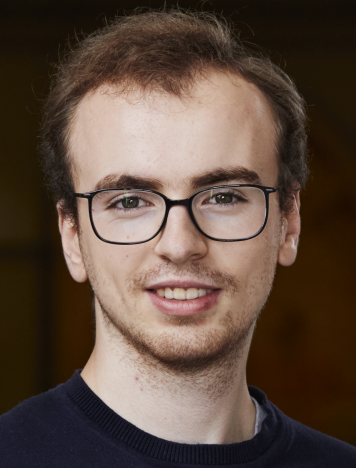
Having finished my electrical engineering bachelor studies in Zagreb, my home country's capital, I enrolled in the Quantum Engineering master's programme at ETH Zürich in 2020. During my studies here, I worked on optical trapping and cooling of nanoparticles in the ETH Photonics laboratory for my semester project, did an internship at QZabre on applications of NV center magnetometry, and explored transport properties of topological semimetals at IBM Zürich for my master thesis. Finally, after these vastly different experiences of applications in the field of quantum science, I decided to join the HyQu group in October 2023 to explore the quickly growing field of cQAD and am very excited to be a part of this team!
Office: HPF G4.2, phone: +41 44 633 89 81, email:
Raquel García Bellés, Doctoral student

I started my Bachelor's in Physics and Mathematics at the Autonomous University of Barcelona with the idea of becoming a pure mathematician that knows a bit about physics. However, halfway through my studies, I got catched by quantum physics and decided to change plans. During an exchange year at NTU in Singapore, I had the great opportunity to undertake a research project where I learnt about superconducting circuits, and I became fascinated by their many possible applications. After returning to Spain, I joined the group of Pol Forn-Díaz for an internship automating the calibration of qubits, and a Bachelor's thesis on adiabatic quantum computing. In 2021, I moved to Zürich to start a Master's in Quantum Engineering at ETH. I conducted my semester project and Master's thesis in the QuDev Laboratory of Prof. Andreas Wallraff, where I mainly worked on the fabrication of Josephson Junctions and the simulation and characterization of superconducting circuits. Now I am thrilled to join HyQu in March of 2024 for my PhD, where I will combine SC circuits and acoustic resonators!
Office: HPF G4.2, phone: +41 44 633 89 81, email:
Frederike Brockmeyer, Doctoral student

During my studies in Physics at ETH, I discovered my love for experimental research through various projects. I was drawn to quantum research due to its unique combination of fascinating theory and practical engineering work. I spend almost two years in the lab of Prof. William Oliver, working on a hybrid system of Si/SiGe quantum dots and superconducting qubits, and discovered that I particularly enjoy working with hybrid systems because they bring together different regimes and fields, making each day varied and full of unique challenges. This led me to pursue my PhD in HyQu in Summer 2025, where I work on the transduction project.
Office: HPF F3, phone: +41 44 633 22 41, email:
Isabelle Franzen, PhD student

During my Bachelor’s degree at ETH, I developed a strong interest in both fundamental physics and Quantum Theory and thus pursued both fields during my Master's. My passion for Quantum Theories and their applications in Quantum Computing solidified over the course of my studies, which led me to work as a research assistant in the Ion Trap Quantum Computing group. Fascinated by the broader realm of hybrid quantum systems, I decided to conduct my Master's thesis in the Hyqu group, where I investigated the generation of multipartite entanglement using optimal control methods, with a focus on GHZ, W, and Cluster states. I am excited to continue in the Hyqu group as a PhD student where I will work on Quantum Random Access Memory (QRAM).
Office: HPF F10, phone: +41 44 633 30 38, email:
Arne Geipel, Master thesis student
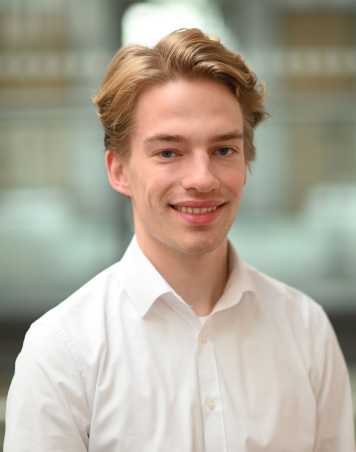
I received my Bachelor's degree in Physics from LMU Munich. For my Bachelor's project, I worked on a spatially incoherent light source for high-quality DMD potentials in Dr. Philipp Preiss' Atomic Quantum Matter group at MPQ. Impressed by the exceptional control of quantum systems at the level of individual atoms, I decided to pursue my Master's studies in Physics at ETH Zurich to further explore AMO physics and quantum information science. I carried out my semester project with the TIQI group, simulating the noise error budget for quantum error correction using GKP states. I joined the HyQu group for my Master’s thesis, where I will develop a 2D circuit architecture with tunable couplers to enable a direct phonon drive and explore the feasibility of generating phononic GKP states.
Dominic Barthlott, Master thesis student
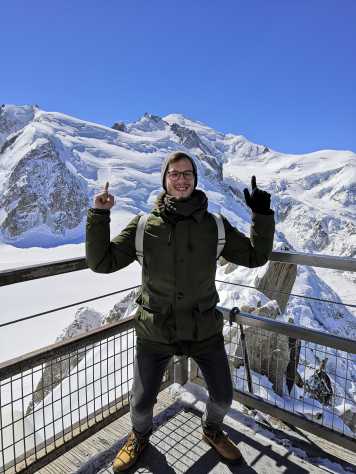
My interest in technical applications and how they actually work motivated me to study electrical engineering at the Karlsruhe Institute of Technology (KIT). During my bachelor's studies, I worked as a research Intern at the University of Cambridge and at CERN where I was investigating the physical properties of superconducting magnets. These experiences sparked my fascination for the physics of electrical devices, especially in the quantum regime. I therefore started my master's degree in Quantum Engineering at ETH Zürich. During that, I worked as a research assistant at QuDev, where I helped to set up components for the cryostats, and as an intern at IBM researching HEMTs. Now, I am looking forward to gaining more experience in experimental quantum physics with my master's thesis in the Hybrid Quantum group. I will be continuing the work of fabricating and measuring double-sided HBARs to increase their coherence time and improve their selective coupling to phonons.
Pietro Borghi, Master thesis student
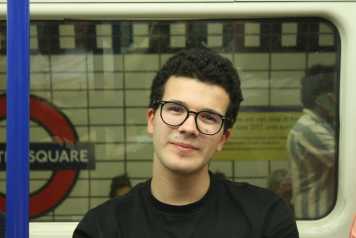
Originally from Italy, I obtained my bachelor’s degree in Physics at University of Padova, before moving to Zürich for my master’s studies in Quantum Engineering. I first joined Hyqu in spring 2023 for my semester project, focusing on building an experiment to drive the phonon modes in the HBARs with a classical electric field. After that, I decided that I needed a short break from quantum sounds – not from quantum physics though – and I relocated twice: first, just a couple of floors downstairs to Prof. Andreas Wallraff’s Quantum Device Lab, to work with fluxonium superconducting qubits; then, to the other side of the English Channel to London quantum computing startup Quantum Motion, to learn about spin qubits in silicon quantum dots. I am now excited to be back to Hyqu for my Master’s thesis, and since I did not feel ready to leave spin qubits behind just yet, I’ll be working in the color centers subgroup on magnetically driving SiV- spin qubits in a diamond HBAR.
Luise Müller, Master thesis student
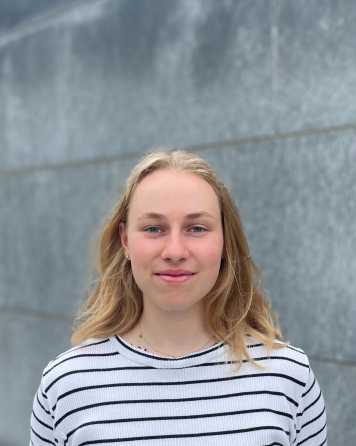
I completed my Bachelor’s degree in Physics at LMU Munich, where I conducted my thesis on confined excitons in perovskite quantum dots in the Photonics and Optoelectronics group led by Prof. Feldmann. I then moved to ETH Zurich for my Master’s in Physics, where I developed a strong interest in quantum information processing. During my semester project in Prof. Home’s TIQI group, I investigated the motional coherence of a single ion in a linear Paul trap. Through Prof. Chu’s Quantum Acoustics lecture, I became particularly interested in hybrid quantum systems. So I’m excited to join the HyQu group for my Master’s thesis, where I will explore how the superconducting qubit’s properties affect the HBAR resonator’s lifetime through the inverse Purcell effect.
Benjamin Neubauer, Master thesis student
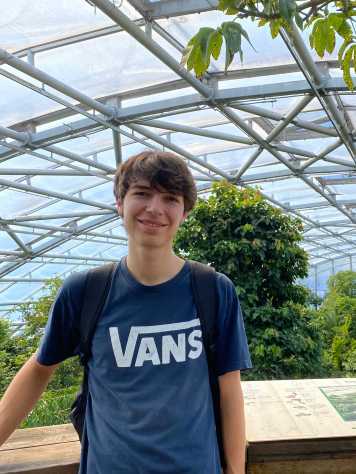
After finishing my bachelor’s in my hometown Erlangen, I was thrilled to see new places and decided to continue my master’s at ETH Zurich. I conducted my semester project in Prof Esslinger’s Quantum Optics group, where I built a laser source for a magneto-optical trap. While this project on nonlinear optics was exciting, I was keen to delve into quantum systems for my master’s thesis. The opportunity to work on microwave to optical transduction in the HyQu group was particularly appealing, as it integrates multiple quantum systems across different frequency ranges. Especially the idea of a mechanical object existing in a quantum state of motion captured my imagination and fueled my interest.
Loris Colicchio, Master thesis student
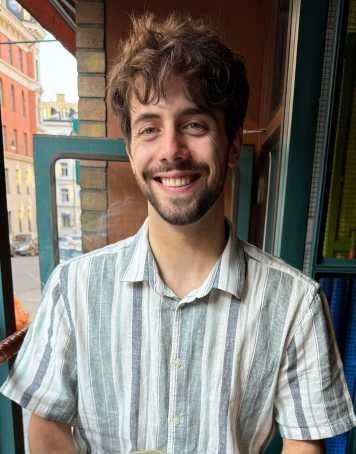
While doing my Bachelor’s degree at ETH, I started to form a strong interest in Quantum Optics and Electronics. This led to a Bachelor thesis in the Optical Nanomaterial Group under Prof. Rachel Grange followed by a Semester Project in my Masters in the Quantum Optoelectronics Group under Prof. Jérôme Faist. At the same time, the Lecture ‘Quantum Acoustics and Optomechanics’ and an internship at the University of Stockholm under Ana Predojević led to an additional interest in bosonic systems for Quantum engineering. In September 2024, I had the chance to join this group for a Semester Project on Loss Mechanisms in HBARs, which lead to a Master Thesis on the same topic.
Senlin, Semester project student
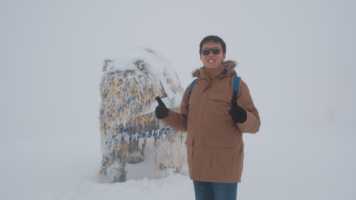
I earned my Bachelor's degree in Physics from the Autonomous University of Madrid. During my studies, I completed an internship followed by my thesis on programmable light-matter interactions with the Quantum Information and Foundations Group at the Spanish National Research Council. Drawn increasingly to the development of quantum technologies, I began my Master's in Quantum Engineering at ETH in September 2024. I am very excited to join the HyQu group for my semester project and work on flip-chip bonding!
Jonathan Esche, Semester project student
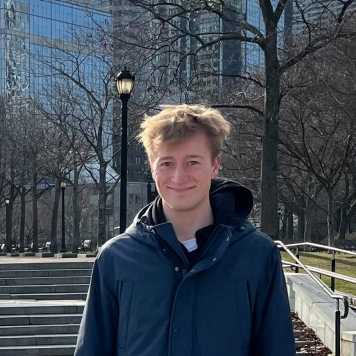
During my Bachelor‘s in Physics at ETH, I became particularly fascinated by the potential of quantum mechanics in technology, which motivated me to enrol in the MSc Quantum Engineering. There I first learned about quantum computing, and in particular, superconducting qubits. In the Case Studies seminar, I had a lab tour in the HyQu group, which introduced me to the concept of cavity-QAD. This led me to do a semester project in the group, in which I am optimizing single-qubit gates and readout fidelity. Outside of my studies, I enjoy running, cycling, and skiing, as well as playing the piano and cooking.
Kevin Kohli, Master thesis student
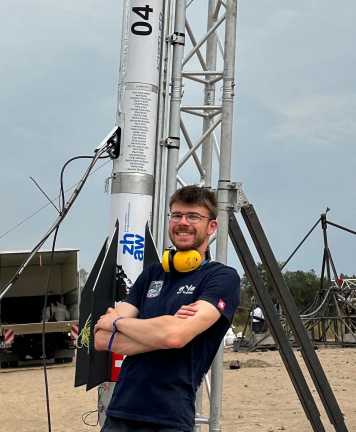
During my time at ARIS, I found my interest in working with electronics and developed the actuator and motor control for BERNOULLI's recovery system. I joined Prof. Degen's Spin group for a Bachelor's semester project where I learnt how to characterise NV centre tips. This started my interest in using quantum mechanics for sensing applications to build precision instruments. In my Master's thesis, I will help to develop a method to detect gravitational waves using hBAR devices.
Guglielmo Gigante, Semester project student
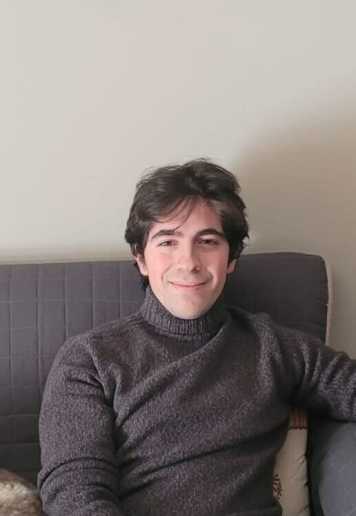
I originally come from northern Italy, but for my bachelor’s degree I decided to stack up on vitamin D tablets and move to Lund, Sweden.
There, I had the opportunity to get research experience in different areas of theoretical physics, from computational condensed matter to quantum information theory. In particular, I wrote my bachelor’s thesis in Associate Professor Armin Tavakoli’s group, where I worked on theoretical quantum metrology in non-equilibrium open systems. As quantum information quickly became my main scientific interest, I decided to pursue my master’s degree at ETH because of its very rich research landscape both in theoretical and experimental quantum information. Feeling eager to learn more about non-classical correlations and to hear what acoustic qubits sound like, I decided to join HyQu for my semester project, during which I will be using numerical simulations to understand if and how a loophole free Bell test can be performed with Hbar devices.
Ananya Amitabh, Semester project student
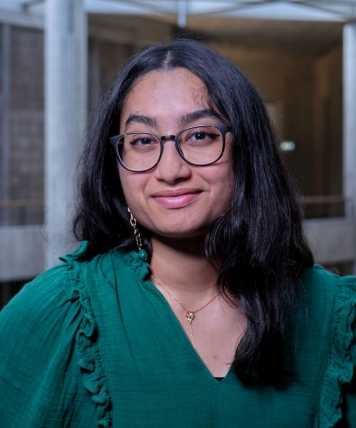
I grew up in Zurich and followed my passion for engineering to ETH, where I completed my bachelor’s in Electrical Engineering and IT. Along the way, I explored everything from hardware design to biomedical sensing, but ultimately, the beauty of quantum technologies won me over. This fascination led me to pursue a master’s in Quantum Engineering. After discovering the research at HyQu during a lab tour, I was inspired to join the group for my semester thesis, where I’m excited to be working on measuring diamond HBARs!
Colin Sennhauser, Master thesis student

After finishing my Bachelor in physics at ETH Zurich, I continued with my Master and started focusing on topics like quantum computing as well as quantum measurements and semiconductors, of which the former particularly started to take my interest. This led me to do a semester project in the Ion Trap Quantum Computation Group at PSI, which was about the assembly and characterization of a double pass AOM-board for the calcium qubit transition. After seeing one possible realisation of qubits I was keen to work with another one in my master thesis. Therefore it is a great opportunity for me to join the Hybrid Quantum Systems Group, where I will be doing microwave-to-optical transduction experiments with superconducting circuits.
Milo Sennhauser, Master thesis student
During my Bachelor's at ETH zurich i started to be interested in Quantum Information processing, which i put a particular focus on in my Master's.
After participating in a Proseminar on Quantum phase transitions I am excited to do experimental work for my Master thesis at HyQu group, where i will work on the steps towards doing bosonic sampling using HBARs.
Giulia Testa, Semester project student

Originally from Italy, I received my Bachelor’s degree in Physics at the University of Trento. In 2024, I moved to Zürich to begin my Master’s at ETH. Alongside my passion for astrophysics and cosmology, I have developed a strong interest in quantum optics and its applications. To bring these two fields together, in September I joined the Hyqu group for a semester project on a sensing experiment with HBARs aimed at detecting high-frequency gravitational waves and exploring potential dark matter signatures.
Xuheng Zhao, Semester project student

During my undergraduate studies in theoretical physics at Imperial College London, I delved into the field of AI for science, gaining research experience in applying machine learning models to optical neuromorphic computing systems, tight-binding models, and neuronal activity analysis — aiming to aid experiments, predict material behavior, and support health diagnostics. After joining ETH Zurich for my master’s in physics, my interest in quantum science stemmed from my theoretical project on simulating non-Hermitian topological phases with hardware-ready quantum circuits in Prof. Carrasquilla’s group and from winning first place in the ETH Quantum Hackathon 2025. Realizing that the key bottleneck in the field lies in hardware, I was motivated to join the HyQu group for a project on optimal control to prepare complex multipartite entangled states. I believe my theoretical and computational background equips me to become an experimentalist with a unique mindset and skill set.
Finn Müssigbrodt, Master thesis student

I completed my Bachelor in physics at ETH, where I had the pleasure of attending Prof. Chu’s lecture for Physics III. In my Master’s I developed an interest in condensed matter physics and consequently attended a proseminar on Quantum Phase Transitions with Dr. Chitra, where I studied deconfined quantum criticality in greater detail. After learning more about sensing and metrology in the last semester, I decided to shift my focus for my thesis. I am exited to join the Hybrid Quantum Systems group to help with Fock state displacement sensing on the HBAR.
Jakob Helms, Semester project student

During my Bachelor’s, I did my Semester Project in Prof. Abreu’s group, where we explored ultrafast terahertz laser techniques and time-resolved spectroscopy to study phonon modes in TbMnO3 and Tellurium. I’ve then deepened my focus on quantum science through courses such as Quantum Information Theory and Quantum Information Processing, and I’m excited to combine superconducting circuits with high-overtone bulk acoustic resonators to realize teleportation!
Beyond the lab, I enjoy playing volleyball and basketball.